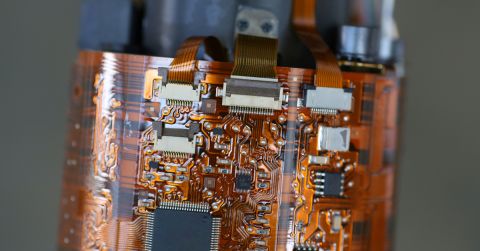The Importance of Using Franchised Electronics Distributors
Using non-franchised electronics distributors significantly adds to supply chain risk.
I could imagine him in a cartoonish way, holding a knife and fork, with a napkin wrapped around his neck, ready to dig into a perfectly cooked turkey. Only I was the turkey, and he was the owner of a local electronics ‘hot house’. I needed a few components to finish some circuit boards and there were none in traditional distribution. But he had some with a questionable date code that he bought on the gray market just in case someone like me really needed them. What made the transaction worse was the 400% markup I needed to explain to the cost accounting folks. “Talk soon,” he said after I gave him a purchase order number. And we did.
Efficient and reliable distribution plays a pivotal role in managing the supply chain and allowing companies to meet their operational, financial, and customer service targets. Franchised electronics distributors have emerged as key partners for manufacturers, engineers, and businesses alike, offering a range of benefits that cannot be matched by non-franchised distributors.
There are several strong reasons to use franchised distributors rather than brokers, hot houses, or unregulated web-based marketplaces.
Product Authenticity and Quality Assurance.
One of the most significant advantages of choosing franchised distributors is the assurance of product authenticity and quality. Franchised distributors work directly with component manufacturers ensuring that the products they supply are genuine and meet strict quality standards. By sourcing components directly with documented lineage from the manufacturer, businesses can mitigate the risks associated with counterfeit or substandard products, ensure continuity of supply, and reduce potential liability and operational issues.
Extensive Product Portfolio and Availability.
Franchised distributors maintain an extensive inventory of electronic components, including the latest technology advancements. They have established relationships with multiple manufacturers, allowing them to offer a diverse range of products. This ensures that businesses can access a wide variety of components, enabling them to choose the most suitable solutions for their projects. Moreover, franchised distributors invest in customer focused inventory management systems, ensuring high product availability and managed deliveries, minimizing production delays and smoothing production schedules and cash flow.
Technical Support and Expertise.
Franchised distributors employ knowledgeable and experienced staff who possess in-depth understanding of the products they offer. They can provide valuable technical support, guiding businesses in selecting the appropriate components for their specific requirements. Their contractual relationships with the manufacturer also provide an increased level of technical and commercial support from the companies that produce the products.
Consistency and Long-Term Relationships.
Establishing a long-term partnership with franchised distributors fosters consistency in the supply chain. Distributors are committed to maintaining relationships with their customers, providing continuous support and addressing business or technical issues This consistency ensures a reliable supply of quality components at a fair price, reducing the risk of production disruptions due to sudden component unavailability, end of life issues, or discontinued products.
In times of product shortages or allocations, buyers and engineers alike may need to search the gray market for needed components. While sometimes successful, long term dependence on non-franchised distributors is not a sound sourcing strategy. Here’s why.
Lack of Product Authenticity and Quality Control.
Non-franchised distributors often source their products through various non-traditional channels, making it difficult to guarantee the authenticity and quality of the components. This opens the door to potential risks such as counterfeit or substandard parts, which can lead to product failures, safety issues, and increased component testing.
Limited Product Range and Availability.
Non-franchised distributors typically have a limited selection of components compared to their franchised counterparts. They may rely on excess or surplus inventory, making it challenging to find specific or cutting-edge components required for advanced technologies. Additionally, their inventory management systems may not be as efficient, resulting in higher prices, longer lead times and delays in product delivery.
Inadequate Technical Support.
Non-franchised distributors may lack the technical expertise required to provide comprehensive support to customers. They might not possess in-depth knowledge of the products they offer, making it challenging to obtain accurate information, specifications, or compatibility details. This can lead to incorrect product selection and compatibility issues, hindering project progress and increasing costs.
Unreliable Long-Term Partnerships.
Without the backing and support of OEMs, non-franchised distributors often lack the stability and long-term relationships that franchised distributors possess. Their limited access to genuine parts and fluctuating inventory levels may make it difficult to establish reliable deliveries.










